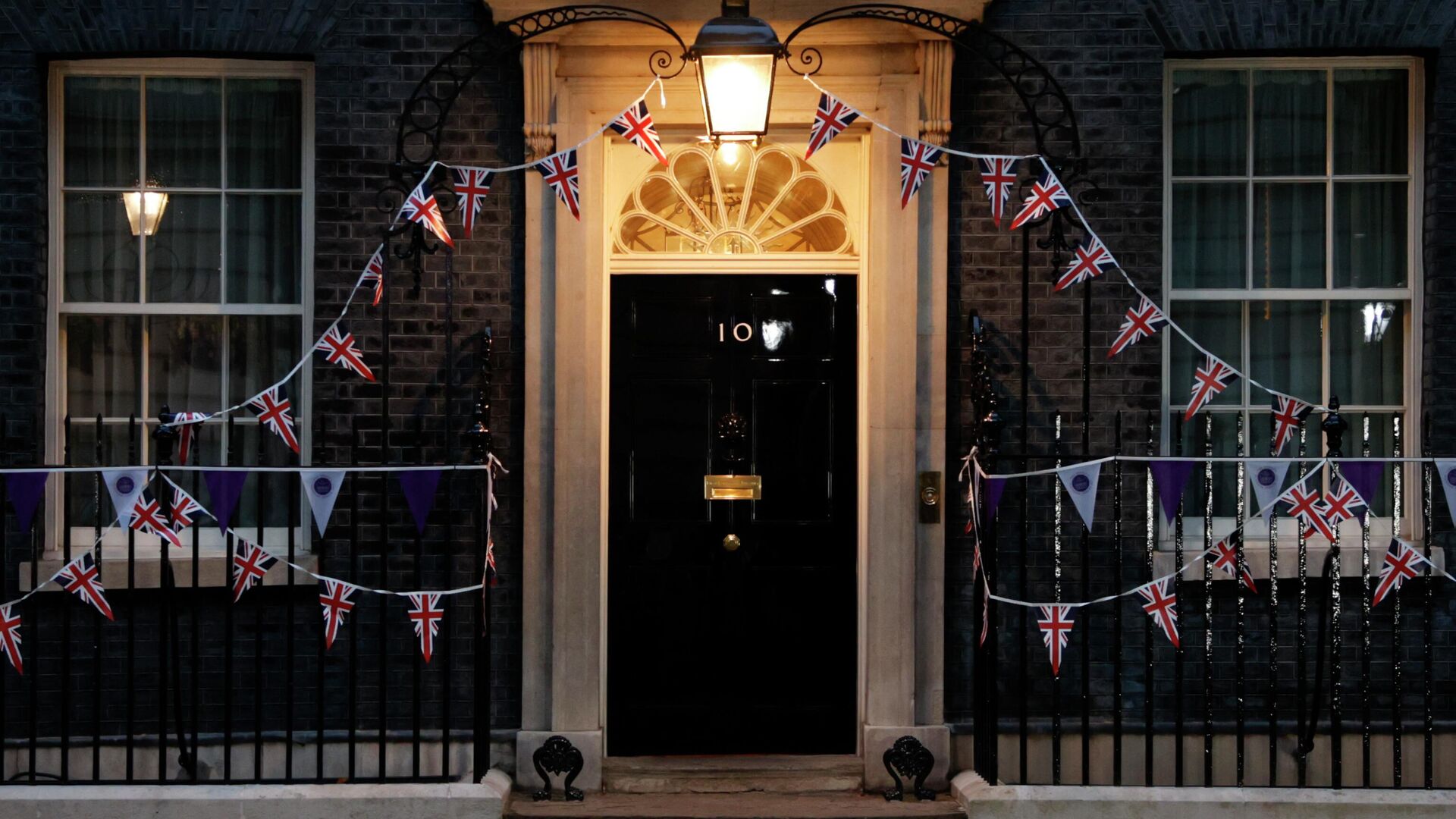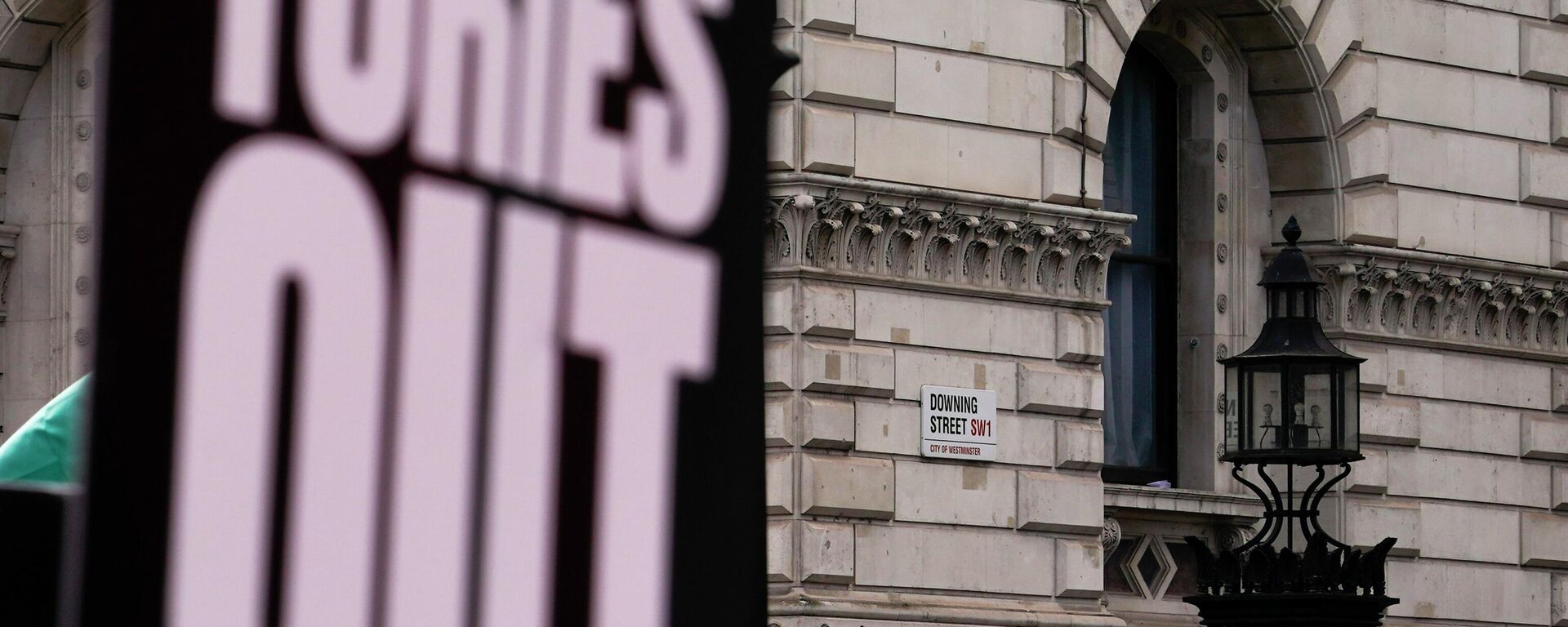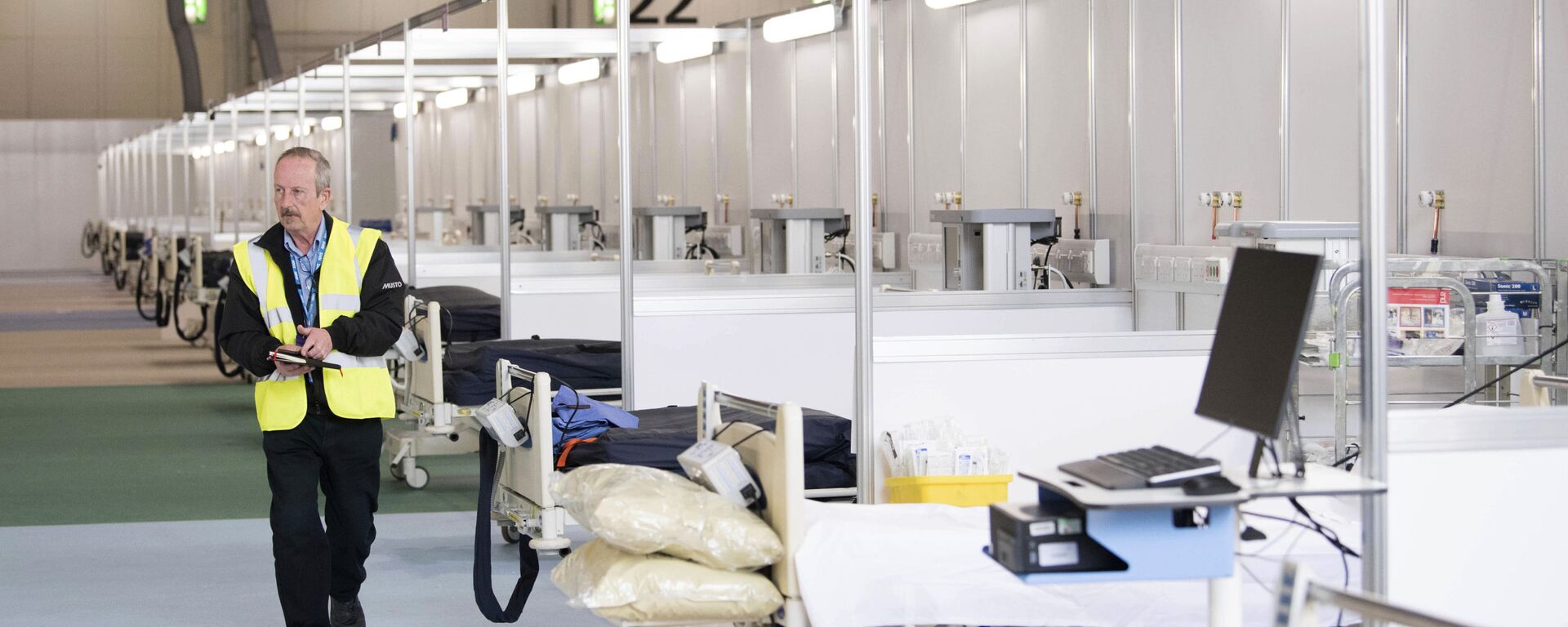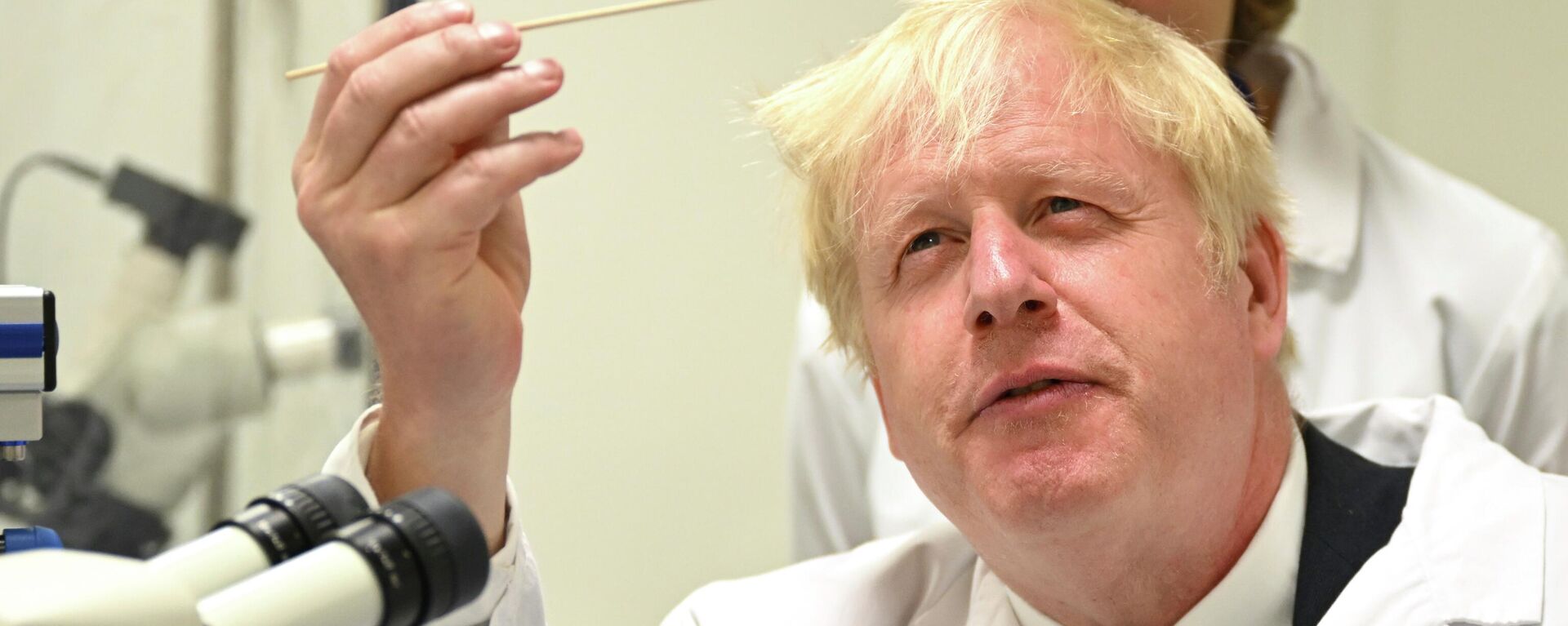Tax Cuts Not the Remedy: Tory Candidates Have No Realistic Plan to Tackle UK Crisis, Observers Admit
17:03 GMT 12.07.2022 (Updated: 15:20 GMT 28.05.2023)

© AP Photo / David Cliff
Subscribe
Eleven Tory candidates have tossed their hats into the ring seeking to fill outgoing UK Prime Minister Boris Johnson's shoes. The Conservative contenders are promising substantial tax cuts to appease the public, even though the Office for Budget Responsibility warns that this would only increase inflation and deepen the unfolding crisis.
"I think the end of the Johnson administration is a positive thing, despite the infighting," says Rodney Atkinson, an academic and political and economic commentator. "The candidates may be promising irresponsible tax cuts and not understanding how the economy works but the public debate is more mature and in the end the right policies could emerge."
One of the candidates, Sajid Javid, former health secretary, vowed to axe the former chancellor’s plans to raise the corporation tax from 19% to 25% in April 2023, and decrease the rate to 15%. His competitor Jeremy Hunt pledged the lowest rate of business taxes in the Western world, while Liz Truss, yet another contender, is also willing to adhere to "low-tax principles." In contrast, former Chancellor Rishi Sunak, who is seeking the prime ministership along with his party fellows, has placed emphasis on "fiscal prudence" rather than tax cuts, while criticizing other candidates for offering "comforting fairytales."
"There are two economic issues here," explains Gayle Allard, a professor of economics at IE University in Spain. "One is the debt, which is clearly a problem for the UK and which would be aggravated by tax cuts. The other is the dilemma between trying to restart growth (which requires a tax cut) and to control very high inflation (which requires a tax increase). And then there is a political objective: voters like tax cuts. Which will win out? I would hope for a short-term tax increase, with the government keeping its promise to reduce it later. I think that makes the most sense."
According to Atkinson, those who are promoting tax cuts without at least equal cuts in state spending are "totally irresponsible."
While the bulk of the candidates are promising anything between 20 and 40 billion in tax cuts, what everyone's really pledging is "to reverse the increase, which was implemented as of April 1," according to Marc Ostwald, chief economist at ADM Investor Services International.
"Let's take, for instance, the corporation tax cut which is being proposed," Ostwald says. "It's not actually a tax cut, because really all it is, is basically saying 'we're not going to implement the increase from 19% to 25% in corporation tax that is planned for next year.' Only Jeremy Hunt, I think, amongst them all is basically pledging to actually cut it down to 15%."
However, there are plenty of problems that cannot be fixed by the much-discussed tax cuts, Ostwald underscores: "The UK's infrastructure is atrocious; the level of poverty in the country is bad; the cost of living crisis [is] somewhat worse in the UK than across much of the rest of the developed world."
British unions kicked off a series of industrial actions starting from June 2022, demanding pay raises in line with skyrocketing inflation and protesting over the cost of living crisis. Tens of thousands of railway workers walked off the job in Britain on June 21. Criminal law barristers took to the streets on June 27. Teachers' unions and the civil service have been balloted on possible industrial action, while doctors and nurses are threatening to follow suit. Meanwhile, British rail and transport workers have voted in favor of a new strike in July.
There are also a whole array of problems related to Brexit, including red tape and other "non-tariff barriers" which translated into additional costs for businesses and are eating away at their margins, according to the economist. He laments the fact that neither the Tory nor Labour Party has so far proposed any solutions to these problems.
UK's Political Instability Making Crisis Worse
The unfolding socio-economic instability has been exacerbated by Johnson's resignation and the internal infighting among British Tories is to some extent "damaging the economy by creating unnecessary uncertainty," according to Kevin Dowd, professor of finance and economics at Durham University.
"[A] lot will depend on who wins the leadership," Dowd says. "There are one, maybe two, decent candidates in there but for the most part they are a sorry lot, and I am not optimistic that a good prime minister will emerge… Most if not all of these people do not have a strong grasp of what the country needs, so I expect a lot more policy drift and a bad outcome for the Tories in the next general election."
A big number of contenders for BoJo's position "shows actually that Johnson has left a bit of a vacuum, because he was to some extent actually quite popular, despite all his lies, despite all his gaffes, despite his incompetent policies, despite all the back to and froing," according to Ostwald.
However, none of the 11 contenders "stands out as a genuine leader, as a prime minister, as a leader of a country," the economist emphasizes.
'It's Johnson's Fault'
It is Johnson who bears "90 percent" of responsibility for the current crisis, the economic observers argue.
"[Johnson] had let state finances get out of control before the COVID Lockdown spending," Atkinson says. "He has been the most irresponsible prime minister since Edward Heath who between 1970 and 1974 led a spending and monetary expansion boom. It resulted in the International Monetary Fund (IMF) controlling the UK economy in 1975. Johnson’s first instinct was more Government and more spending and more borrowing. We will be paying for his failure for decades."
Johnson "must bear a lot of the blame," Kevin Dowd agrees. While having a huge parliamentary majority and the opportunity to make radical reforms free of the shackles of the EU, Johnson "blew it," according to the professor.
"What are the chances of the UK going into recession? I think it's pretty much baked in the cake," echoes Ostwald. "There isn't a lot of momentum there. The trade position is getting worse. The cost of living crisis is quite clearly there and the investment into the UK is getting weaker and I would add that this whole methodology of applying sanctions by seizing assets is particularly bad for the UK. The UK has been attracting foreign capital from Russia, from the Middle East, from Asia, from pretty much anywhere that one can think of for a very, very long time."
However, it's not only the outgoing prime minister who is responsible for the current crisis in the UK, the economist admits: "These have been accumulating for years. People have been going to the food banks in the UK since the numbers started rising in the early 2010s after the global financial crisis and the numbers got a lot worse than in the meantime, particularly due to the cost of living crisis," Ostwald concluded.






